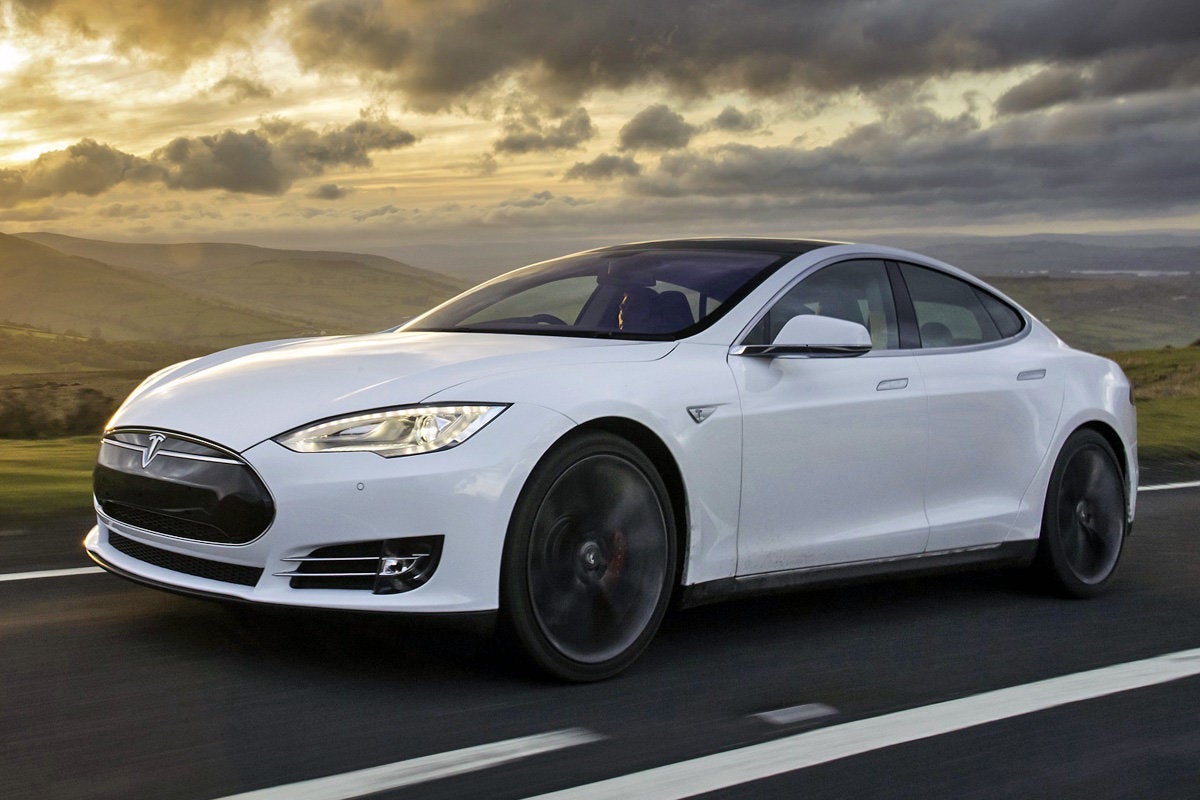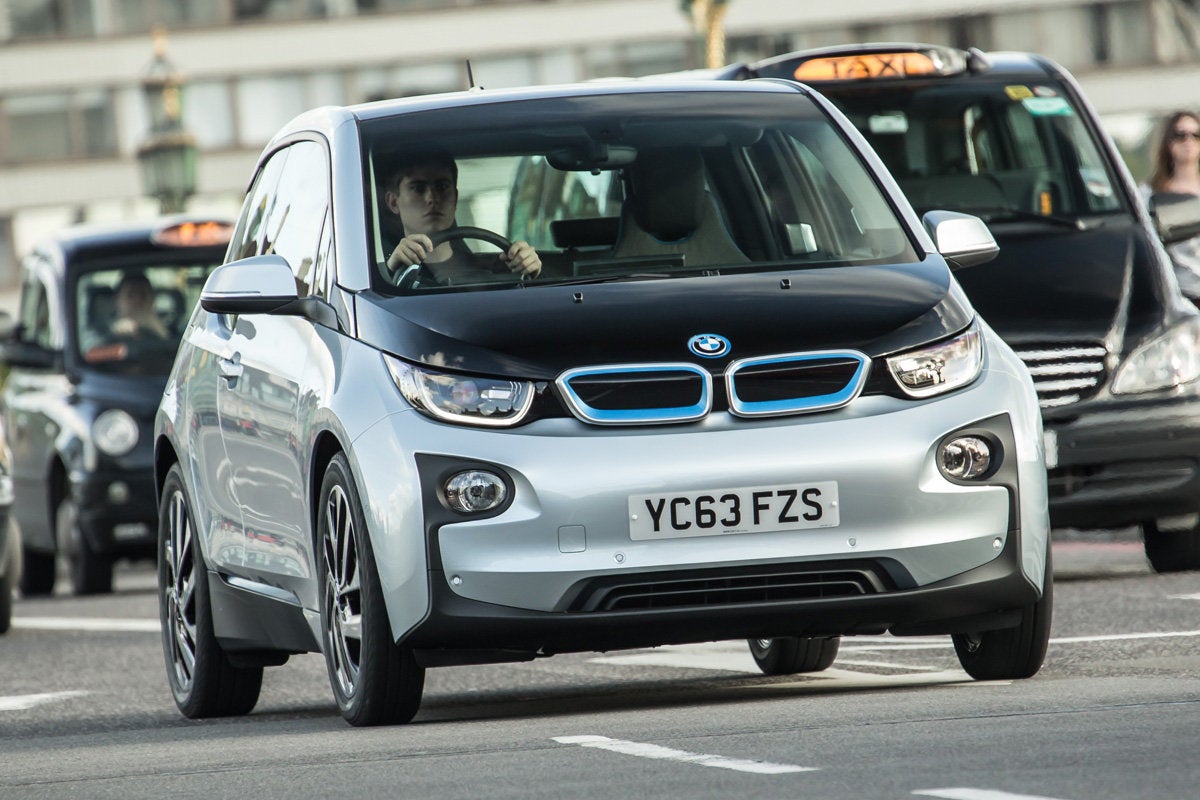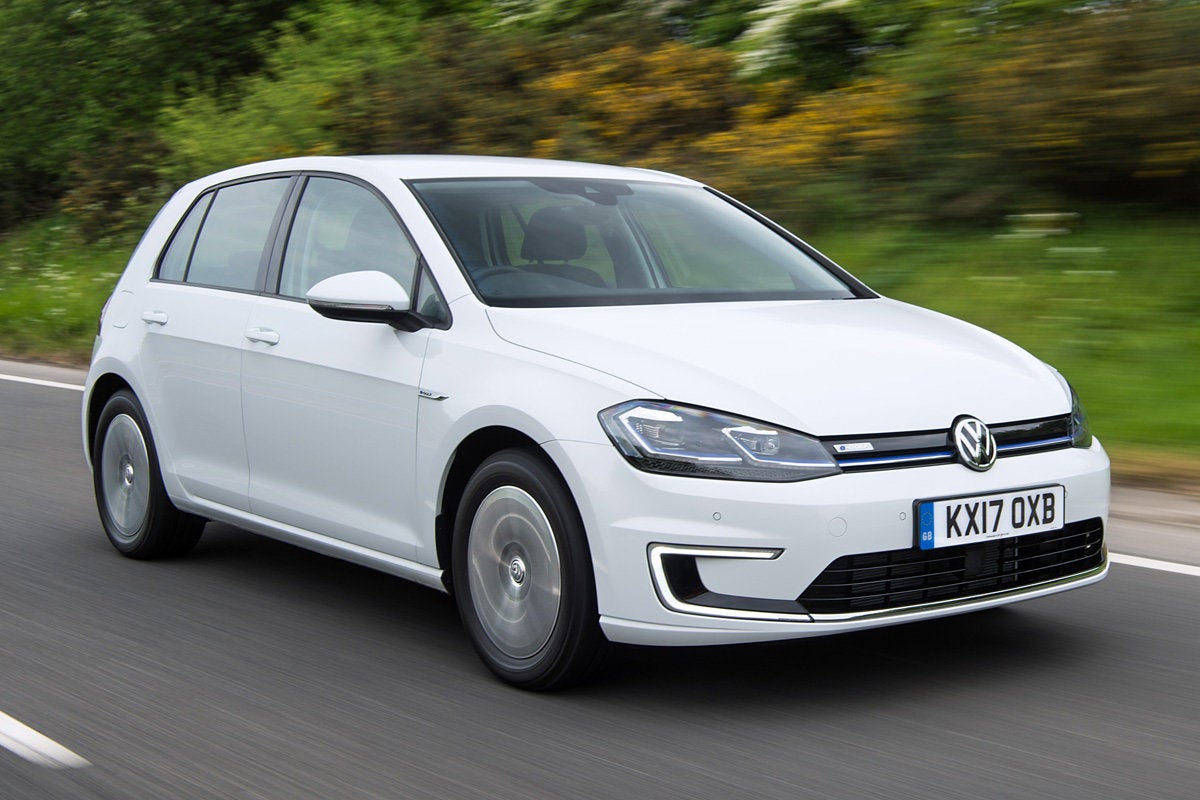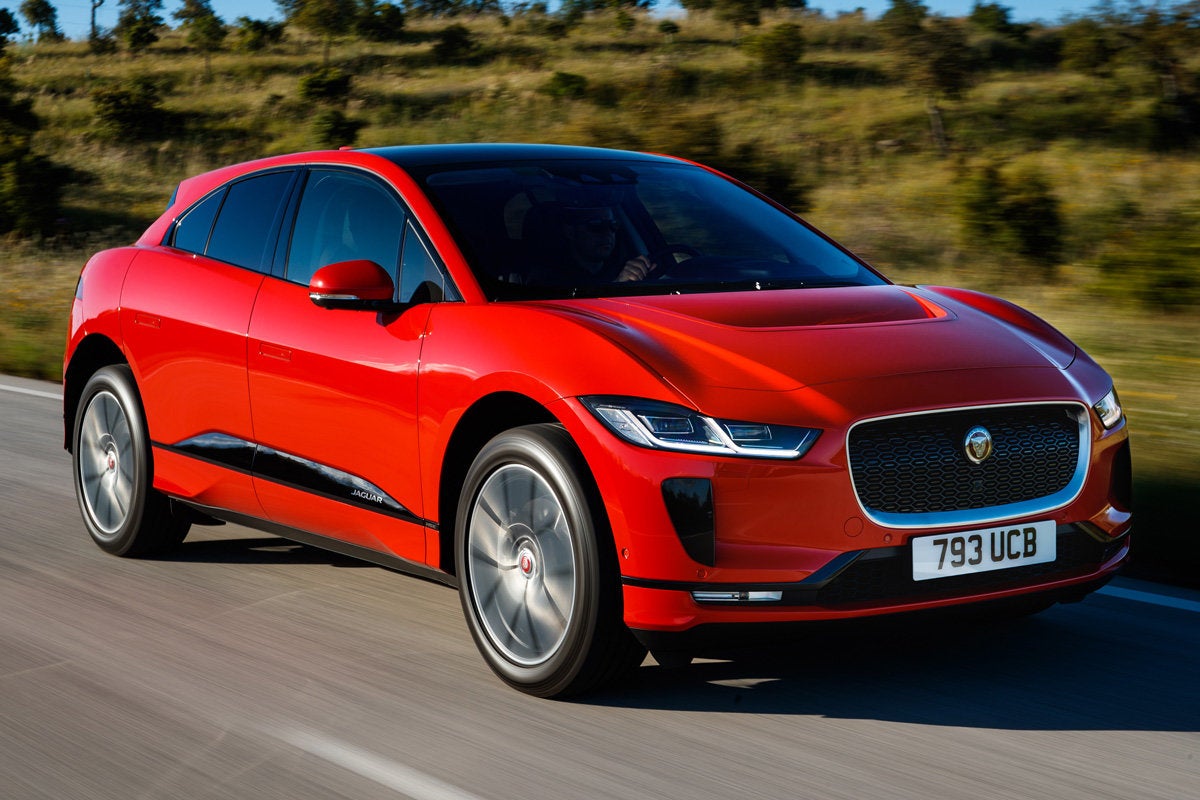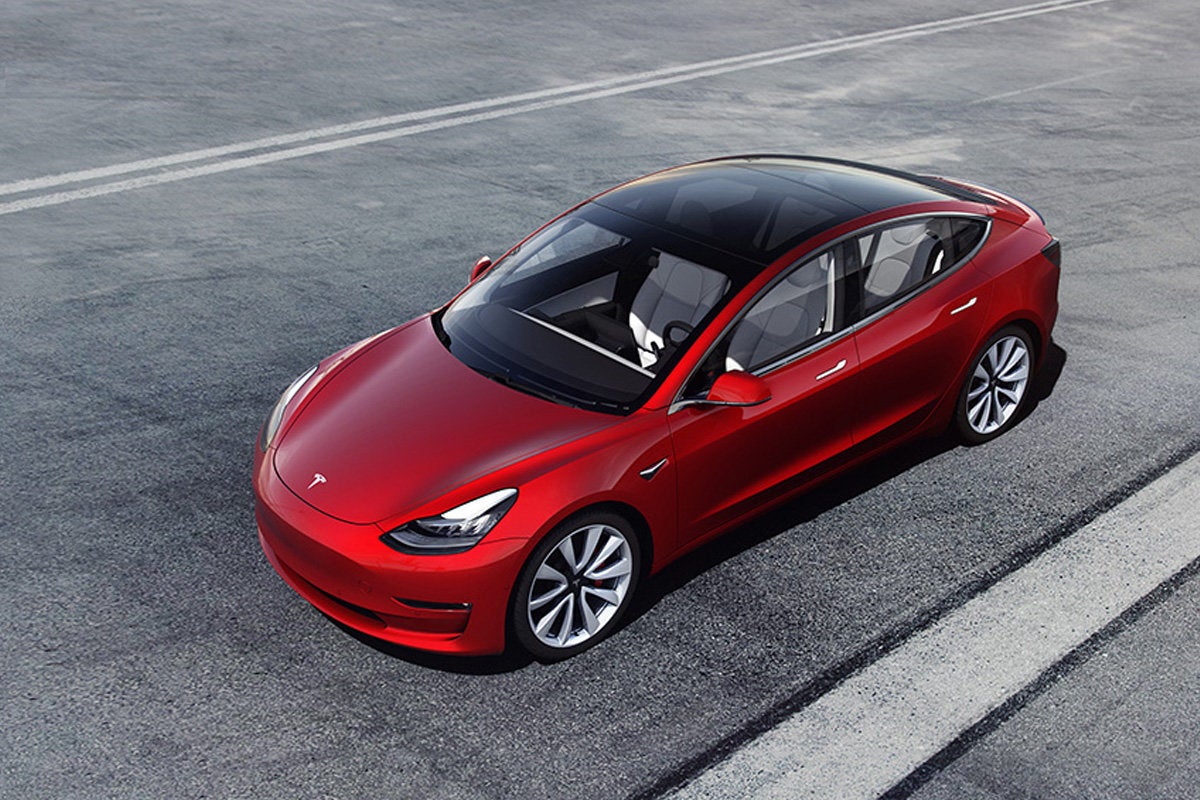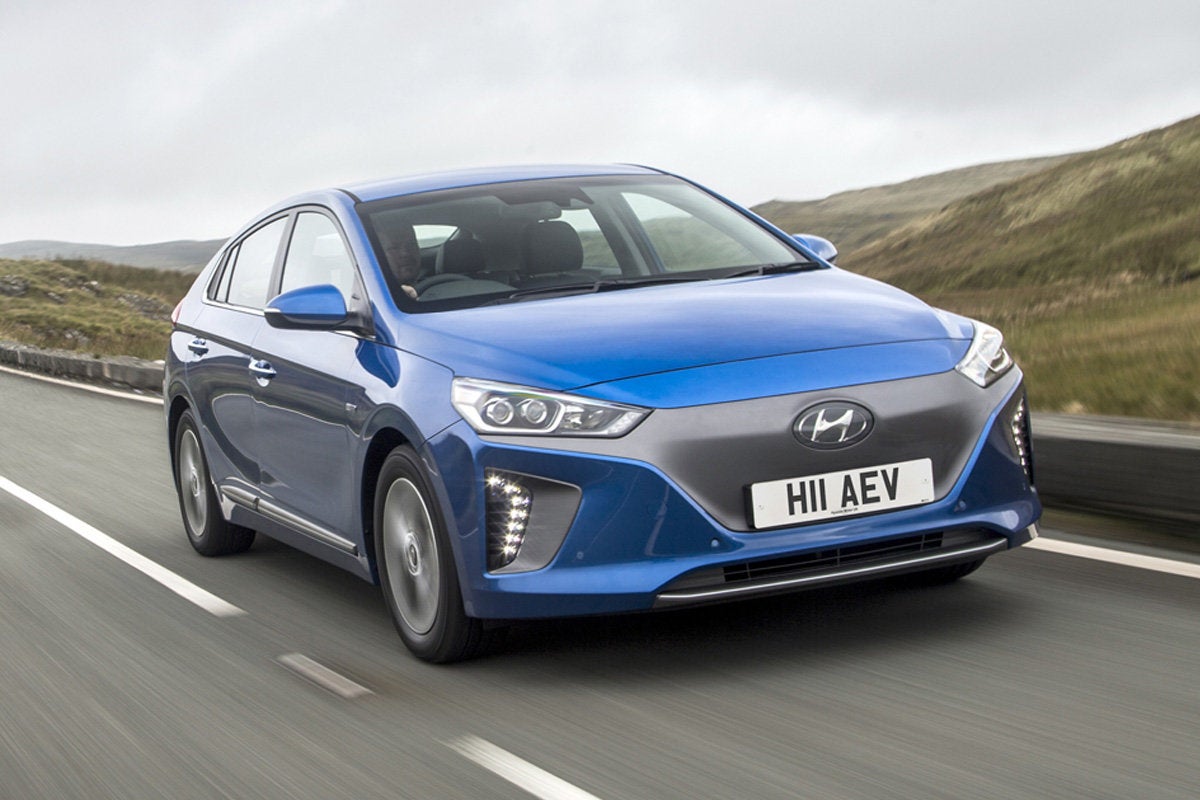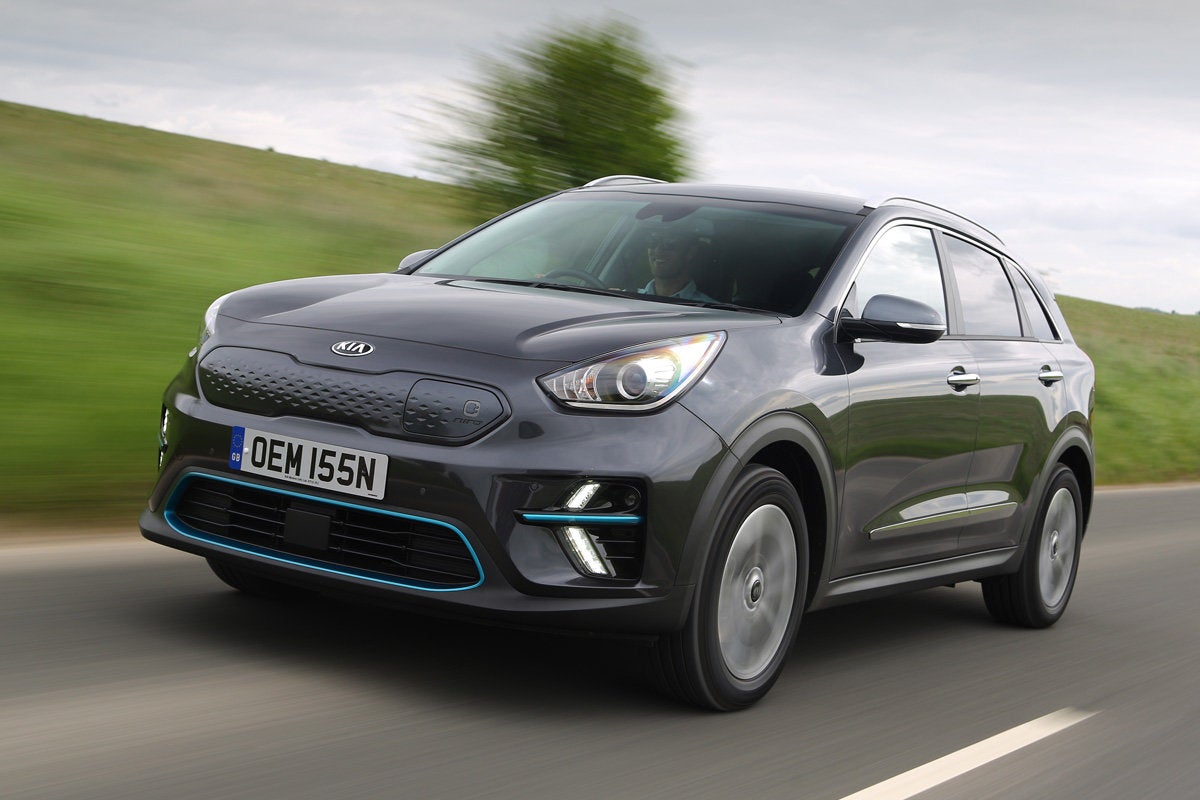It wasn’t all that long ago that your choices were limited if you wanted an electric car. Nowadays, though, most manufacturers have introduced all-electric models, and more new EVs vehicles are rapidly being added to new car line-ups all the time.
This surge in choice and and ever-rising sales has caused the used electric vehicle market to expand significantly, so it’s now a lot easier to find something affordable that suits your needs as a used buy.
Here’s our pick of the 10 best electric cars available on the British second-hand market, ranging from inexpensive city cars to high-performance hatchbacks. If one catches your eye, just remember to triple-check its capabilities, with regards to range and charging, and make sure to note the battery and powertrain warranty. That way, there shouldn't be any unpleasant surprises.
And if you're looking for a cheaper way into electric car ownership, don't miss our guide to the best cheap used EVs to buy.
The Best Used Electric Cars 2025
- Tesla Model S (2014-)
- BMW i3 (2013-2022)
- Volkswagen e-Golf (2014-2020)
- Nissan Leaf Mk2 (2017-)
- Kia EV6 (2021-)
- Jaguar I-Pace (2018-)
- Tesla Model 3 (2018-)
- Hyundai Ioniq Electric (2017-2022)
- Kia e-Niro (2019-2021)
- Honda e (2020-2023)
Tesla Model S (2014-)
Tesla has unquestionably changed the way many perceive plug-in power. When the Model S was introduced in 2014, even the basic 60kWh version had a claimed range of 240 miles and a 0-60mph time of just 5.9 seconds. Suddenly, here was a brand new electric car that offered the range and performance many were dreaming of, and it knocked the likes of the established-but-staid Nissan Leaf into the shade. Later versions are even more capable, as the later entry-level Long Range Plus hit 60mph in 3.7 seconds and has a range of up to 405 miles.
It’s that range that makes the Model S far more practical and usable than other slower, less advanced and less interesting electric cars. The company’s rapid charging Supercharger network makes it easier to live with, too.
And because the Model S has been around for so long, used prices have had plenty of time to plummet: older Model S examples are available in our listings for less than £15,000. Do bear in mind, however, that reliability, support and longevity are questionable, so don’t buy a used Tesla unless you’ve some money set aside to cover any issues.
Tesla Model S Review
BMW i3 (2013-2022)
The BMW i3 is great if you want something smaller and easier to handle. As a range extender (abbreviated to REx), it can be had with a small petrol engine to give it 50-70 miles of non-electric range in case your charge runs out. However, we think it’s best in pure electric form, without the additional weight and complexity of that petrol power unit. Second-hand electric examples start at around £8,000 on the used market, and the initial claimed range of 118 miles should prove adequate for the average commuter (expect more like 60-90 miles in real world driving).
What’s particularly good about the i3, compared to more conventional offerings such as the Nissan Leaf or the Kia Soul EV, is that it has lots of appealing design elements and a high standard of fit and finish. It also offers a more involving and entertaining driving experience than many other electric cars, which gives it some enthusiast appeal.
It’s quick, too, as the 168bhp electric motor will shift it from 0-62mph in 7.2 seconds. Later versions have bigger batteries for longer ranges; the 33kWh model, for example, can cover a claimed 195 miles on a single charge. A used BMW i3 isn’t the most practical choice if you regularly want to carry passengers, because the rear doors can only be opened if the front door on the same side is opened first. It's a four-seater, but the boot is small and some may find its ride a little bumpy. But, if it’s a stylish and entertaining runaround you’re after, we reckon it’s one of the best small electric cars out there.
BMW i3 Review
Volkswagen e-Golf (2014-2020)
When it was introduced in 2014, the Volkswagen e-Golf’s 26.5kWh battery offered up to 118 miles of range between charges. Its 114bhp electric motor made it good for 0-62mph in 10.4 seconds, which rendered it as quick as a conventional 1.6-litre diesel equivalent.
The Golf is as polished a product as you’d expect, with fine on-road performance, a comfortable interior and high equipment levels. It was only sold with one trim level, which included dual-zone climate control, parking sensors, an 8.0-inch media system and LED headlights.
An updated version was introduced in 2017, featuring a 35.8kWh battery pack and a more powerful 134bhp electric motor. The additional battery capacity bumped up the range to 186 miles which, according to VW, translates to around 124 miles in the real world.
These versions are the ones worth keeping an eye out for, and prices for these start at around £9,000. That'll be much cheaper than a used Volkswagen ID.3, and the Golf is arguably nicer to drive, too. Alternatively, if you need something smaller, check out the compact e-Up electric city car.
Volkswagen Golf Review
Nissan Leaf Mk2 (2017-)
The Nissan Leaf often doesn’t get the credit it deserves. When the first version arrived in 2010, it marked a dramatic step forward for electric cars, because its technology and packaging brought practical and functional zero-emissions motoring to many.
The cheapest examples on the used market change hand for just a couple of grand, making it an incredibly cheap EV, but if your budget allows we'd suggest going for the second-generation Leaf instead. It arrived in 2017 and features sharper, more modern styling and a host of technological improvements, including a larger battery and further increased range. What's more, the latest models (including nearly new) are a steal on the used market, meaning you can get into a family-sized Leaf for supermini money. And while the Leaf doesn't have the outright range to match newer electric cars, the e+ model will officially manage up to 239 miles between charges (think roughly 200 miles in real world driving), which will be enough for many drivers.
Nissan Leaf Review
Kia EV6 (2021-)
In our book, the Kia EV6 is one of the best all-rounders anywhere in the EV market, new or used. Quite simply, there's absolutely nothing that this car doesn't do really well.
Okay, so it has styling that can't quite decide whether it wants to be a hatchback, a crossover or an SUV, but it still somehow manages to look attractive and sophisticated. The sophisticated feel continues on the inside, with expensive-feeling materials, impressively solid build quality and stacks of standard luxury kit. And while it's not quite as roomy as larger alternatives like the Skoda Enyaq, it's more than big enough for most families, albeit ones without a dog.
It's great to drive, too, combining a comfortable ride with agile handling. There are a variety of motor and battery options delivery varying levels of power and range, but in both respects, all versions punch well above their weight compared with rivals.
And while the EV6 makes financial sense as a new car, it makes even more as a used car. While new-car prices start at around £45,000, used ones can be had from around £20,000. It's far from the cheapest used electric car on this list, then, but it's still an absolute bargain. And thanks to a brilliant reliability record and that exceptional seven-year, 100,000-mile warranty, you should have no concerns over buying a pre-owned one.
Kia EV6 Review
Jaguar I-Pace (2018-2024)
If you want a premium electric car that’s great to drive, then a Jaguar I-Pace should be at the top of your list. It’s certainly not among the cheapest of used electric cars, because the most affordable examples start at around £15,000, and prices have the potential to rise much higher than that, but you get quite the machine for your money.
Jaguar claims a range of up to 292 miles but, in the real world, expect in the region of the low 200s. Even so, that’s often more than enough to make it a viable solution for many. Using 100kW fast charging, up to 100 miles of charge can be added in 30 minutes, which makes longer trips pretty feasible.
It’s quick as well, thanks to twin motors, all-wheel drive and a combined 396bhp, and can accelerate from 0-62mph in just 4.8 seconds. The I-Pace might not be as savage as some of the more powerful Teslas, but it’s more engaging to drive and more comfortable, as long as you stay away from the 21-inch wheel options, which can make the ride too harsh.
Jaguar I-Pace Review
Tesla Model 3 (2018-)
If you like the idea of the Tesla Model S but want something smaller, more manageable and more modern, there’s always the Model 3. Like the Jaguar, it’s a lot pricier than the cheapest EVs, but if you want a compact high-performance electric saloon, then you’re probably willing to pay a premium anyway. There isn’t, after all, much else like it for the money.
Go for a Long Range Model, and you’ll get an electric car with all-wheel drive (via dual motors) that produce a combined 443bhp and a stellar claimed range of 348 miles. It’ll also sprint from 0-60mph in just 4.6 seconds and, as with all Teslas, access to the Supercharger fast charger network could make it far easier to live with than alternative electric cars. The cabin is also really hi-tech, with a cool touchscreen infotainment system.
As with the Model S, though, a used Tesla Model 3 has its drawbacks. Reliability can be patchy (although problems are typically minor) and support can be poor. The warranty is only four years and 50,000 miles, too, so the cheapest used examples probably won't have any left. The batteries, at least, are covered for eight years and 100,000 miles.
Tesla Model 3 Review
Hyundai Ioniq Electric (2017-2022)
The Hyundai Ioniq Electric is good to drive, practical and easy to live with. Early versions came with a 28kWh battery capable of a 174-mile range but, in 2019, a 38.3kWh model was launched with a range of up to 193 miles.
The Ioniq Electric also came with a five-year, unlimited-mileage warranty from new, so later examples should still be covered (although always check). You also get an eight-year, 125,000-mile battery warranty. Coupled with its range, that could make the Hyundai a smart choice for those seeking a capable and low-fuss used EV that isn’t overly expensive.
You get lots of kit for your money, too, as standard features include climate control, LED headlights, a rear-view camera, wireless phone charging and adaptive cruise control. The Ioniq is no slouch, either, as its 118bhp electric motor will propel it to 62mph time in 9.9 seconds.
Alternatives such as the BMW i3 and the Volkswagen e-Golf are better to drive, but the Ioniq’s combination of a stout range, a comprehensive warranty and good reliability will make it more appealing to some.
Hyundai Ioniq Review
Kia e-Niro (2019-2021)
Buyers looking for good practicality and range in a sensible package would do well to consider the Kia e-Niro. It’s offered with a 39kWh or 64kWh battery, which respectively have a claimed range of 180- or 282 miles, although you should expect a real-world range of 150 miles, or 250 miles from the larger battery.
That version is the one to get if your budget stretches, because its long range makes it a far more viable choice. It’s not cheap – used examples cost from around £15,000 – but it’s likely to be more affordable than a Tesla or a Jaguar I-Pace. There are also fewer ownership concerns, because Kia rates highly for reliability and you’ll likely benefit from the remainder of the e-Niro’s seven-year, 100,000-mile warranty.
Practicality is good, too – the Kia has the edge over alternatives such as the Hyundai Kona and Nissan Leaf in this respect – and it’s also good to drive. It’s quiet, comfortable, rides well and it’s quick: the 201bhp 64kWh version will sprint from 0-60mph in just 7.5 seconds. It’s widely regarded as one of the best electric cars about, because its combination of range, a roomy interior and comparatively sensible pricing makes it a great all-rounder.
Kia e-Niro Review
Honda e (2020-2023)
Now, we won't lie, the Honda e wasn't hugely popular as a new car. Granted, there were plenty of people who were completely taken with its effortlessly funky retro-modern styling, were dazzled by its sumptuous, tech-filled interior, and were drooling over its heaving kit list.
However strong the pull in those areas, though, many of those same people simply couldn't countenance the idea of paying upwards of £35,000 for a teeny city-car-sized EV with a best-case-scenario range of just 137 miles, no matter how cool it was. That's why it was quietly withdrawn from sale after only a couple of years on the new car market.
As a used buy, however, the little Honda makes much more sense. With second-hand prices kicking off at around the £15,000, it's much more fitting with the budget of those looking for a second car or about-town runaround, which the e was always going to be due to its dinky dimensions and limited range. If you can live with those limitations, then electric cars don't come any more stylish or charming than this.
Honda e Review

